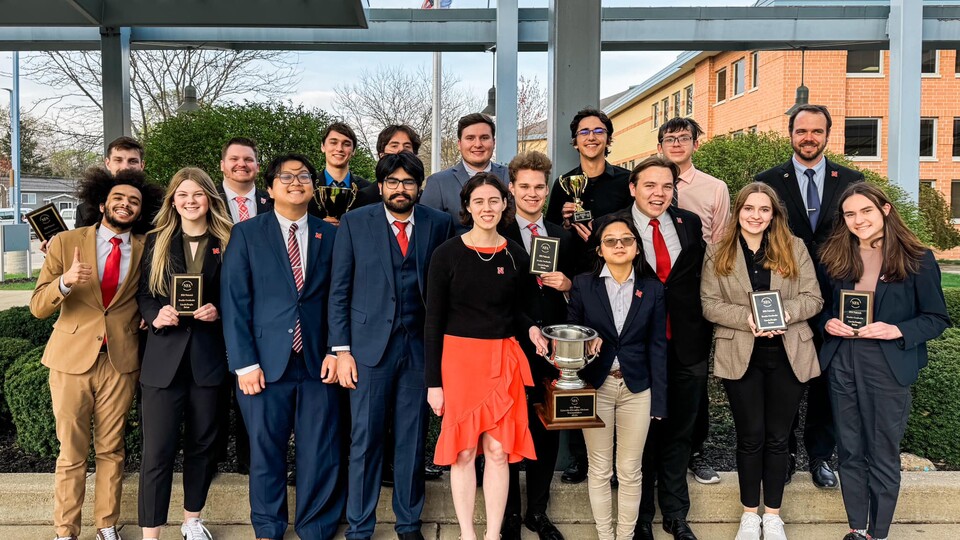
A vaccine candidate developed by Eric Weaver, biological sciences, and colleagues has demonstrated signs of protection against an unprecedented range of swine flu strains, the likes of which drove pandemics in both 2009 and 1918. Stories on the research appeared in The Grand Island Independent, Science Codex, Scienmag and a few other media outlets.
• • •
Marco Abel, English and film studies, gave a recent interview to the Berliner Gazette. He discussed German filmmakers Dominik Graf, Christoph Hochhäulser and Christian Petzold and how some of their films relate to Germany’s reunification and its aftermath, as well as the neoliberalization of post-Wall Germany.
• • •
Katrina Jagodinsky, history, was interviewed for a March 7 USA Today article on York, an enslaved Black man who was part of Meriwether Lewis and William Clark’s expedition in the early 1800s. Jagodinsky said Clark spoke of York “in disparaging ways.” Clark suggesting that York was not equipped for freedom is an “indication of Clark’s sort of lingering racism — something he held for the remainder of his life,” she said.
• • •
Sidnie White Crawford, professor emeritus of classics and religious studies, was cited in a March 10 New York Times story on a new scholarly article and companion book by Israeli-American scholar Idan Dershowitz claiming that a manuscript discovered in 1883 — long dismissed as a forgery — is actually the oldest known Biblical manuscript. Without the original fragments, Crawford said, Dershowitz’s arguments can’t be proved or disproved, so they “must remain a footnote in the scholarly discussion of the origins of Deuteronomy.”
Crawford was also quoted in a March 22 Live Science article on the topic.
• • •
Stephen Ramsay, English, has contributed to the new essay collection “Further Reading.” In it, he argues that in the era of machine reading, it is we who are “read by the minute” by algorithmic technologies. The Times Literary Supplement published a March 12 review of the book.
• • •
Kelsy Burke, sociology, co-wrote a March 19 article for the Religion News Service on evangelical men and the rhetoric of porn addiction, and how it relates to the recent mass shooting in Atlanta. “Given (suspect Robert) Long’s exposure to Christian porn addiction recovery rhetoric, it likely contributed to his claim that his out-of-control sex addiction fueled his atrocious violence,” the article stated. “But we should make no mistake that it was the toxic combination of racism and misogyny that exists both within evangelicalism and broader American culture that compelled him.”
Burke was also interviewed for a March 20 Business Insider article on how the shooting shows the dangers of American evangelicalism’s trademark “purity culture.” “In addiction recovery programs, the blame is rarely directed at men themselves. It’s directed at the obscure sexual secular culture, the pornography industry,” she said. “In the case of Mr. Long, these messages clearly, for multiple reasons, went sort of sideways.” Yahoo News picked up the story.
• • •
Jay Storz and Anthony Signore, both biological sciences, and colleagues have resurrected two ancient versions of hemoglobin, demonstrating how the blood of penguins evolved to help them better hold their breath while hunting for seafood. Stories on the research appeared in ScienceDaily, Scienmag and a few other media outlets.
• • •
Casey Kelly, communications studies, author of the new book “Apocalypse Man,” was the featured guest on a recent episode of the Norco 80 podcast. He discussed survivalism’s enduring allure, from pioneer days to prepper conventions.


